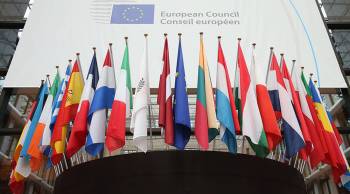How Islamic law has affected Middle East economics
TEXT OF INTERVIEW
Kai Ryssdal: The economic roots of the protests in the Middle East are pretty well known by now. Frustration over the lack of jobs, low and stagnant wages, and no real economic opportunity in most places.
To understand why this is the case, Duke University economics professor Timur Kuran says you need to look at history. Religious history, in particular. His new book on Islamic law and how it has affected economic development is called “The Long Divergence.” Welcome to the program.
Timur Kuran: Thank you for inviting me on your show.
Ryssdal: Is there something about Islam and Islamic law that prevents or has prevented economic development in the Middle East?
Kuran: There are problems that are rooted in traditional Islamic law, which govern business until the 20th century that have kept businesses small and short-lived. It impeded private capital accumulation, it prevented the emergence of modern capital markets. So the Arab world and the wider Middle East modernized economically quite late; it’s still at the beginning of a transition out of Islamic law into what we might call modern, commercial and financial law.
Ryssdal: Some of those historical aspects we’re familiar with: the prohibition against lending at interest and laws on inheritance. Your point though, in your book, is that Islam has really overcome those, and it’s the lag between the modern economies of the rest of the world and the Middle East that cause some of the problems we’re seeing today.
Kuran: That is correct. Business in the Middle East is conducted everywhere in the Middle East under laws more or less transplanted from Western Europe in their entirety. Now, the region remains underdeveloped; the reason is the level of trust in the region is low and the scale of business tends to be quite small for historical reasons.
Ryssdal: The level of trust? So you mean interpersonal and intercorporate relations?
Kuran: I do. Trust is high among acquaintances, but people do not trust strangers and they don’t feel comfortable dealing with corporations.
Ryssdal: So as you look around at the modern Middle East today, give me the big industrial survey: what are the General Motorses of the Middle East? What is the Intel, or the Google, of the Middle East? Do they exist?
Kuran: No companies exist that have been that innovative, at least in the Arab world. We do have big and long-living Arab companies, as we did not a century ago. We have them in the media sector, also in steel, construction, textiles. So the problem is no longer the inability to form large and durable companies. The problem is political instability, which greatly limits the amount of investment and greatly limits the amount of risk that people are willing to take. A related problem is that political connections still matter; there are many people who have good ideas who would be willing to take risks, but they do not because they lack connections and they cannot borrow adequately.
Ryssdal: So as that political instability that we’ve all seen over there the past six weeks or two months reaches the endgame in some countries, does that necessarily mean that they will be able to catch up quickly from the drag that Islamic law has put on?
Kuran: For the short run, I’m quite pessimistic. It’s not possible to move from autocratic regime to a fully democratic system overnight. This is going to take generations. Turkey started the process about 70 years ago — Turkey has a form of democracy now, it’s still not a perfect democracy. I think that the Arab countries are going to move to democracy in fits and starts. In the long term, I’m quite optimistic about the region. And the reason is, that all of the key ingredients for economic modernization and political modernization are there. What’s lacking right now is the will and leadership.
Ryssdal: The book by Timur Karan is called “The Long Divergence” about Islamic law, and the economics of the Middle East. He is a professor of economics and Islamic studies at Duke University. Professor, thanks so much for your time.
Kuran: Thank you.
There’s a lot happening in the world. Through it all, Marketplace is here for you.
You rely on Marketplace to break down the world’s events and tell you how it affects you in a fact-based, approachable way. We rely on your financial support to keep making that possible.
Your donation today powers the independent journalism that you rely on. For just $5/month, you can help sustain Marketplace so we can keep reporting on the things that matter to you.


















